Today Delrin is used in a wide variety of applications owing to its versatile mechanical and chemical characteristics. In the middle of the twentieth century, it was introduced by DuPont. Then Delrin is widely used as a material in manufacturing as it possesses desirable characteristics. These may include high mechanical strength, stability regarding size, low coefficient of friction, and chemical incompatibility. In this article, we will explore more about Delrin, its capacity, functionalities, uses, and other aspects.
What is Delrin (POM-H)
Delrin also called polyoxymethylene (POM) belongs to the family of high-performance and general-purpose thermoplastic materials. Delrin is a homopolymer, which means it is made up of one type of monomer, i.e. formaldehyde with a chemical formula (C3H6O)n. This composition may result in a highly crystalline structure. Moreover, the polymer chain in Delrin consists of repeating units of –CH2O–. So, it leads to a highly ordered and even dense molecular arrangement.
Delrin – Polyoxymethylene {POM-H) Complete Production Process
The production process of polyoxymethylene (POM) is commonly known by its brand name Delrin. So, it involves several key steps, i.e. polymerization, compounding, and shaping. So, here’s an overview of the typical process involved in producing POM.
1. Preparation of Raw Materials
Here, we first make sure to collect and prepare all the input factors needed for the production process. Formaldehyde plays a major role in POM preparation as it is derived from different sources, i.e. methanol. This methanol is synthesized from natural gas or petroleum.
2. Polymerization of Formaldehyde
It is the first and essential process in POM manufacture. Specifically, the species of formaldehyde enters a process called polymerization where several molecules come together to form large molecules of polyoxymethylene. The process of polymerization may also occur by many methods, i.e. catalytic polymerization or anionic polymerization.
3. Copolymerization (Optional)
Sometimes, its synthesis can involve copolymerization. So, it can incorporate certain characteristics into the POM. Copolymerization refers to the polymerization of formaldehyde with other monomers or with additives. In some cases, the polymerization reaction may involve the use of comonomers like ethylene oxide or vinyl chloride together with stabilizers lubricants, or colorants.
4. Compounding of POM
After the polymerization process, the POM polymer might undergo compounding. Here the POM resin is combined with other products. So, it can improve specific characteristics or improve processability. Some of the usual examples of additives are antioxidants, UV stabilizers, lubricants, and flame retardants. Additionally, it also includes reinforcing agents, i.e. glass fibers.
5. Shaping of the Product
Further processing of the POM resin involves shaping the product by formation and techniques. These may include injection molding, extrusion, or compression molding. Injection molding is one of the most formal methods used to create shapes with high complexity and short cycle time. In this process, the POM resin is melted to its forging temperature and is injected into the mold cavity under high Pressure. The molded part is released from the mold after the cooling and solidification process. So, it can undergo further processing or use.
6. Post-Processing
Finally, the parts coming out of the POM shape can go through other processes, i.e. machining, surface finishing, or assembly. This process selection depends on the specific application requirements. Additionally, several operations like milling, turning, or drilling may be utilized to achieve precise dimensions. Along with this, polishing, buffing, or coating can be employed to enhance the appearance or performance.
7. Quality Control
As the production progresses, a high level of quality assurance is maintained. So, it can come up with products that are very meet the required POM standards and specifications. Here quality control may involve testing the raw materials, monitoring process parameters, and inspecting finished parts for dimensional accuracy. Besides this, it may also include surface quality, and conducting performance tests to assess mechanical properties, thermal stability, and chemical resistance.
Different Properties of Derlin (POM-H)
So, let’s discuss the different properties of Derlin (POM-H);
Mechanical Properties
- It offers high tensile strength and stiffness. It makes the material ideal for applications that require it to bear loads.
- Delrin is stable in size and shape, which makes it a practical, reliable, and highly effective material with longevity.
- It has low friction and very high wear rates which improves its durability.
- Delrin has high fatigue and creep strengths so it is ideal for systems that require long-term use without failure.
Chemical Properties
- Delrin performs well with solutions and suspensions and is also highly resistant to solvents, fuels, and oils.
- It also has low moisture absorption so it retains its original shape in applications that have high humidity levels.
- Most Delrin grades have passed the FDA test for use in packaging that is in contact with food products.
- Delrin is useful electrically as they are excellent electrical insulators, useful in electrical applications.
- It maintains fairly good stability to UV rays however, long-term exposure may limit the need to use UV stabilizers.
Thermal Properties
- Delrin operates at high temperatures up to its melting point so it does not deform easily.
- It possesses a certain resistance toward heat and thus, does not undergo significant change in its properties even at high temperatures.
- Delrin has a low coefficient of thermal conductivity, this implies that Delrin is a poor conductor of heat.
What’s the Differences Between Acetal Plastic and Delrin?
So, here is a table that will help you understand the difference between Acetal Plastic and Delrin
| Feature | Acetal Plastic (Generic POM) | Delrin (Brand Name POM) |
| Manufacturer | Various manufacturers | DuPont (now part of Chemours) |
| Chemical Structure | Homopolymer or copolymer of polyoxymethylene | Homopolymer of polyoxymethylene |
| Mechanical Properties | Good mechanical properties | Superior mechanical properties, higher stiffness |
| Creep Resistance | Generally good, varies by manufacturer | Excellent, better than generic Acetal |
| Dimensional Stability | Good | Excellent, superior stability over time |
| Thermal Stability | Adequate, varies by type | Higher thermal stability |
| Moisture Absorption | Low | Very low, better resistance to moisture |
| Friction and Wear | Low friction, good wear resistance | Very low friction, exceptional wear resistance |
| Chemical Resistance | Resistant to many solvents and chemicals | Superior chemical resistance, a broader range |
| Machinability | Good, easy-to-machine | Excellent, very easy to machine |
| FDA Compliance | Varies by manufacturer and grade | Many grades FDA compliant for food contact |
| Cost | Generally lower | Slightly higher due to brand premium |
| Applications | Widely used in mechanical parts, gears, bearings | Preferred in high-precision, high-performance applications, including automotive, aerospace, and industrial machinery |
| Availability | Widely available from multiple suppliers | Available from authorized DuPont distributors |
Applications of Delrin
Delrin’s versatility makes it able to be used in multiple applications across various industries. So, let’s discuss them here in detail.
- Automotive:It is highly durable and offers minimum friction coefficients. Moreover, it has a moisture-insensitive character. So, Delrin is perfect for making gears, bearings, bushings, and some parts of the car’s fuel system.
- Consumer Goods: It possesses strength, stiffness, and the ability to be made attractive. So, it is used in zippers, fasteners, handles, and in the housing of pocket electronic devices.
- Industrial Machinery: It also has high strength, low coefficient of friction worn resistance capability in specialty industrial applications. So, it is widely used in conveyor belts, rollers, pulleys valves, and other mechanical parts.
- Healthcare: In the healthcare range, Delrin finds use in medical sectors, cutting tools, and prosthetic products for it is biocompatible. Because it has stable sizes and can be sterilized.
- Aerospace: It has low density but high strength. Due to these mechanical attributes, Delrin is applied in the Aerospace industry for aircraft interior fitments, auto parts like seats, and various structural pieces
What are the Advantages and Disadvantages of Delrin (POM-H)?
So, here is a detailed table, that will help us understand the benefits and Drawbacks of Derlin (POM-H).
| Advantages of Delrin (POM-H) | Disadvantages of Delrin (POM-H) |
| High stiffness and strength | Susceptible to stress cracking |
| Excellent wear resistance | Limited resistance to acids and bases |
| Low coefficient of friction | High thermal expansion |
| Good dimensional stability | Poor UV resistance |
| Resistant to moisture and chemicals. Have good electrical insulating properties | May degrade under high temperatures |
Conclusion
In conclusion, what is Delrin? It is POM, a versatile engineering thermoplastic with a remarkable combination of properties. These mainly include mechanical strength, dimensional stability, low friction, and chemical resistance. Additionally, It has various applications across the automotive, consumer goods, industrial machinery, healthcare, and aerospace industries. So, it has quite a prominent role in modern manufacturing. Contact us for more information.
Frequently Asked Question
Q1. How is Delrin Used? What Can You Make with Delrin?
Delrin is used in numerous areas of operations. More of it is used in auto parts, appliances, machinery, medical equipment and devices, and aircraft. It is used in gears, bearings, bushings, zippers, fasteners, and many other items.
Q2. What Are the Benefits of Making Parts with Delrin?
It offers various beneficial properties, such as very high stiffness, shrinkage, wear, friction, and chemical resistance. So, Delrin manufacturing can make the components lighter and cheaper in terms of cost than their metal versions. Further, some other advantages associated with this material are durability, machinability, and better surface finishing.
Q3. How Do You Assemble Delrin Parts?
You can assemble the Derlin parts using adhesives, screws or nuts, clips or press connectors, and/or welding, depending on the application requirements. Additionally, you can use press-fitting. It will guarantee a secure connection, while welding techniques like ultrasonic welding or hot plate welding are also applicable to assembling the parts.
Q4. What’s the Right Surface Finishing for Delrin?
Delrin has various surface finishes achievable depending on the requirements. These may include leaving a smooth, machined finish, or applying additional processes, i.e., polishing, buffing, or coating. Various surface treatments, like anodizing or plating, can be used to increase wear resistance or corrosion resistance.
Q5. How Much Does It Cost to Machine Delrin Parts?
Hence, the machining expenses vary based on factors like the technicality of the Delrin parts, desired tolerance levels, surface conditioning, and the quantity of a particular part. However, you can optimize the parameters and minimize material waste to reduce the overall cost.

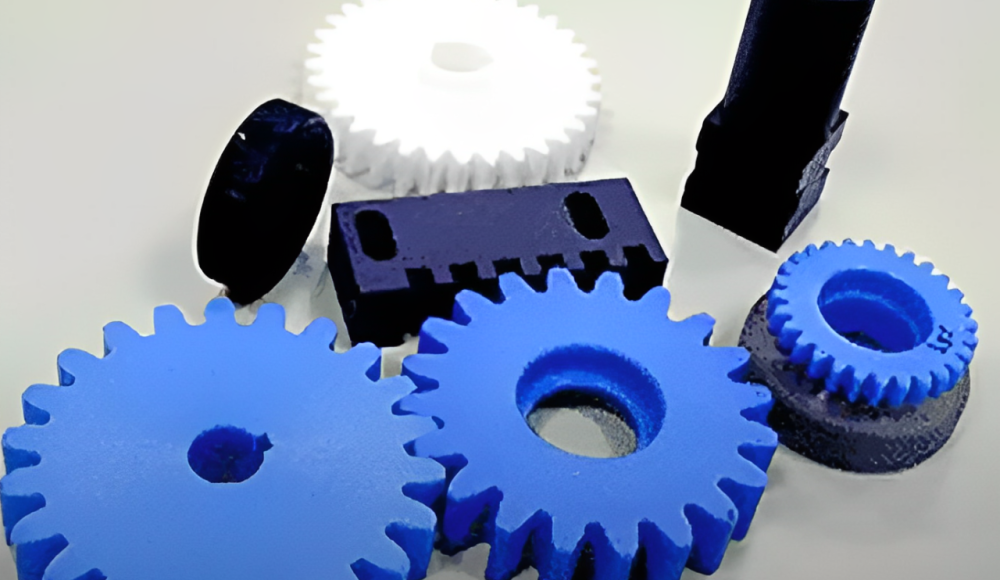
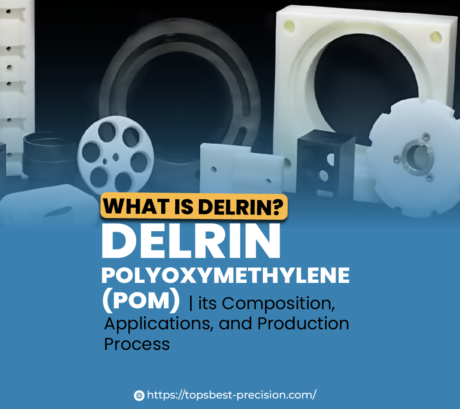
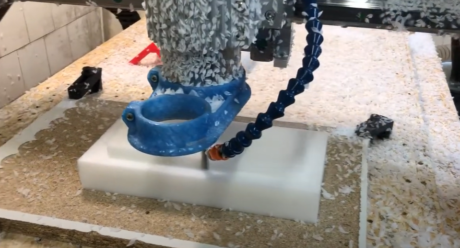
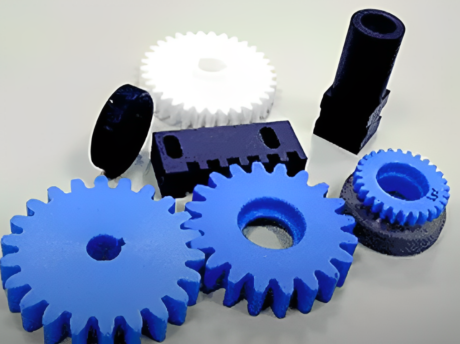
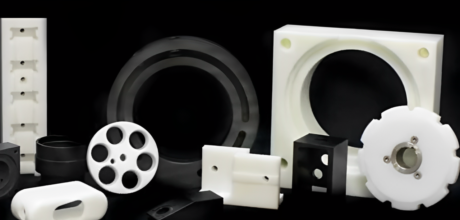
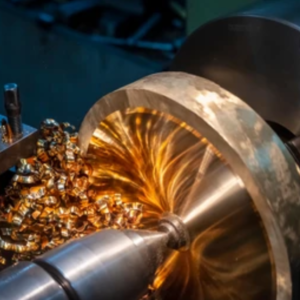
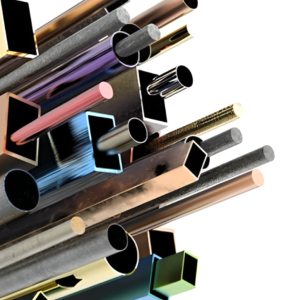
3 thoughts on “ What is Delrin (POM-H), its Composition, Applications and its Production Process”